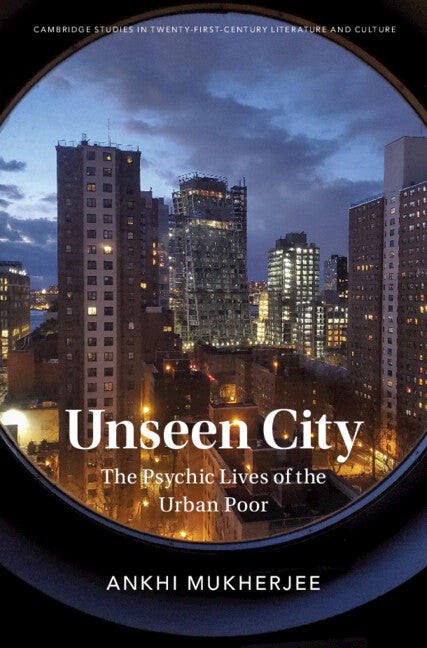Freshly Printed - allow 4 days lead
Couldn't load pickup availability
Unseen City
The Psychic Lives of the Urban Poor
Reconfiguring the lines between literature and psychoanalysis, this book argues that to alleviate poverty we engage with its psychic life.
Ankhi Mukherjee (Author)
9781316517581, Cambridge University Press
Hardback, published 9 December 2021
278 pages
23.5 x 15.7 x 2 cm, 0.53 kg
'Beautifully written, academically pathbreaking and ethically clarifying, Unseen City foregrounds the voices of the voiceless and the experiences of the excluded, forging a new conjunction at the intersection between postcolonial cultural studies, empirical fieldwork, literary studies and politically engaged, philosophically refined psychoanalytic criticism. It is, furthermore, a work that speaks to one of the major global public health crises of our times: the ongoing mental health catastrophe. Breathing new life into arguments for the urgent necessity of the inclusion of humanities-informed psychosocial research into the global mental health epidemic, Mukherjee points us towards what a more humane and intellectually sophisticated response to this epidemic might look like. Let us hope that where she has shown the way, others will soon follow.' Barry Watt, Psychoanalysis and History
In Unseen City: The Psychic Lives of the Urban Poor, Ankhi Mukherjee offers a magisterial work of literary and cultural criticism which examines the relationship between global cities, poverty, and psychoanalysis. Spanning three continents, this hugely ambitious book reads fictional representations of poverty with each city's psychoanalytic and psychiatric culture, particularly as that culture is fostered by state policies toward the welfare needs of impoverished populations. It explores the causal relationship between precarity and mental health through clinical case studies, the product of extensive collaborations and knowledge-sharing with community psychotherapeutic initiatives in six global cities. These are layered with twentieth- and twenty-first-century works of world literature that explore issues of identity, illness, and death at the intersections of class, race, globalisation, and migrancy. In Unseen City, Mukherjee argues that a humanistic and imaginative engagement with the psychic lives of the dispossessed is key to an adapted psychoanalysis for the poor, and that seeking equity of the unconscious is key to poverty alleviation.
Part I. London: 1. Eco-cosmopolitanism as Trauma Cure
2. The Analyst as Muse of History in Disaster Zones: Free Clinics, London
Part II. Mumbai: 3. Slums and the Postcolonial Uncanny
4. Psychoanalysis of the Oppressed, A Practice of Freedom: Free Clinics in Urban India
Part III. New York: 5. Open, Closed, Interrupted City
6. Psychoanalysis of the Unhomed: Free Clinics, New York.
Subject Areas: Humanistic psychology [JMAN], Ethnic minorities & multicultural studies [JFSL1], Gender studies, gender groups [JFSJ], Urban communities [JFSG], Social classes [JFSC], Globalization [JFFS], Literary studies: from c 1900 - [DSBH]


